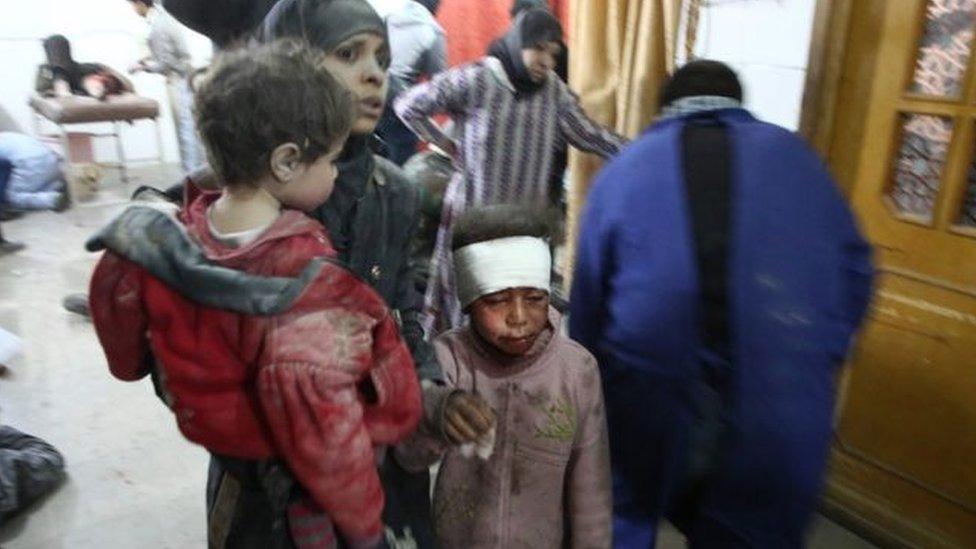Johnson: Chemical attacks on Syrians can't go unpunished
- Published

The UN has accused the Syrian government of a "monstrous campaign of annihilation"
Britain should consider military action against the Syrian regime if there is fresh "incontrovertible" evidence that chemical weapons have been used against civilians, Boris Johnson has said.
The foreign secretary told the BBC he believed the use of illegal weapons should not go unpunished.
A short pause in fighting is in force in the Syrian suburb of Eastern Ghouta.
The respite was ordered by Russia, an ally of the country, to allow civilians to flee and aid to be delivered.
But Mr Johnson says it is not enough.
More than 500 people have been killed since last week in Eastern Ghouta, where activists on Sunday reported a suspected poison gas attack.
The foreign secretary said that while the West could not intervene to change the odds in favour of the rebels fighting Syrian President Bashar Assad's regime, he believed the use of illegal weapons had to be addressed.
Buses waiting
"It's very important to recognise there's no military solution that we in the West can now impose," he told BBC Radio 4's Today programme.
"The people listening to us in Eastern Ghouta cannot get the idea that the West is going to intervene to change the odds dramatically in their favour.
"But what I think we need to ask ourselves as a country - and I think what we in the West need to ask ourselves - is can we allow the use of chemical weapons, the use of these illegal weapons to go unreprieved, unchecked, unpunished? And I don't think we can."
He stressed: "If there is incontrovertible evidence of the use of chemical weapons, verified by the Office of the Prevention of Chemical Weapons - if we know that it's happened and we can demonstrate it, and if there is a proposal for action where the UK could be useful, then I think we should seriously consider it."
On Saturday, the United Nations Security Council passed a resolution calling for a 30-day ceasefire, but it did not set a specific start date.
Russia said the five-hour pause in bombardment would run from 09:00 until 14:00 local time (07:00-12:00 GMT) daily.
The Syrian Red Crescent would help set up the humanitarian corridor and residents would be informed about how to leave via leaflets, text messages and videos, it added.
Buses and ambulances will be waiting at a crossing to evacuate the sick and wounded.
"Five hours is better than no hours, but we would like to see an end to all hostilities extended by 30 days, as stipulated by the Security Council," UN spokesman Stephane Djuarric told the AFP news agency.